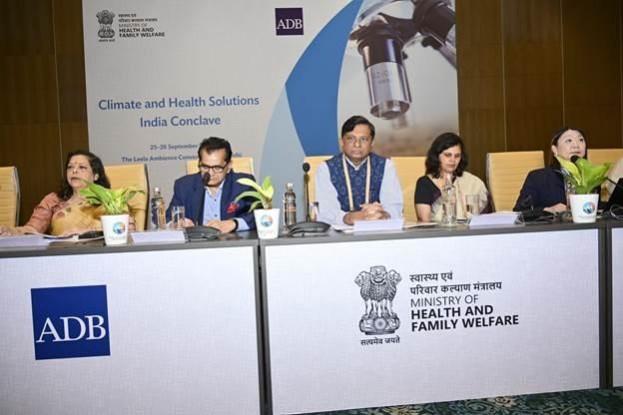
Apurva Chandra, Secretary at the Ministry of Health and Family Welfare (MoHFW) in India, underscored the pressing need to incorporate climate considerations into health planning. This statement was made at the Climate and Health Solutions (CHS) India Conclave, a collaborative effort between the MoHFW and the Asian Development Bank (ADB), held in Delhi. Chandra emphasized the significance of the conclave, stating, The Climate and Health Solutions India Conclave is our commitment to building a climate-resilient health system that addresses the unique needs of developing nations like ours.
India is leading by example, as per Chandra, by integrating climate considerations into health policies and emergency response mechanisms. The collaboration with the ADB and other global partners is a strategic move to ensure that India's health sector is prepared to handle the unforeseen impacts of climate change and support sustainable development. Chandra added, Together, we can achieve the vision of 'One Health, One Family, One Future.
The conclave, spanning two days, was designed to address the dual emergencies of climate change and public health. It aimed to bring together policymakers, experts, and stakeholders to develop actionable strategies for India's health sector. Amitabh Kant, G20 Sherpa, also spoke at the event, emphasizing the importance of India's leadership, scale, and size in demonstrating the leapfrogging of development pathways at the intersection of climate change and health for India and the world.

Kant stressed the need for integrated, sustainable solutions to safeguard the health of people and the planet in the face of rising temperatures, unpredictable weather patterns, and the growing burden on healthcare systems. He highlighted India's leadership through the G20 Presidency in bringing this issue to the global forefront. He called for collaboration to create "a unique opportunity to shape resilient and adaptive health systems".
The experts at the conclave also shed light on the proactive steps taken by India in integrating climate change considerations into its public health policies. Punya Salila Srivastava, Officer on Special Duty, MoHFW, mentioned the creation of the Mission on Climate Change and Health, nearly a decade ago, under the Prime Minister's Council on Climate Change as a pivotal moment in this journey.

In 2019, the Ministry of Health and Family Welfare introduced the National Programme on Climate Change and Human Health (NPCCHH) under the National Health Mission. This national action plan on climate change and health has served as a blueprint for nearly all states and union territories to develop their respective state action plans. India's next ambition is to have each district assess its vulnerability to climate change and develop customized climate change and health action plans, reflecting a whole-of-government and whole-of-society approach.
The collaboration with the ADB and other global partners is crucial for India to ensure its health sector is equipped to handle climate impacts, fostering sustainable development, and demonstrating global leadership in integrating climate considerations into health planning.
The recent statements by Apurva Chandra and other experts at the CHS India Conclave highlight the urgent need for integrating climate considerations into health planning. The collaboration with global partners like the ADB further strengthens these efforts, positioning India as a leader in addressing the intertwined challenges of climate change and public health.

















